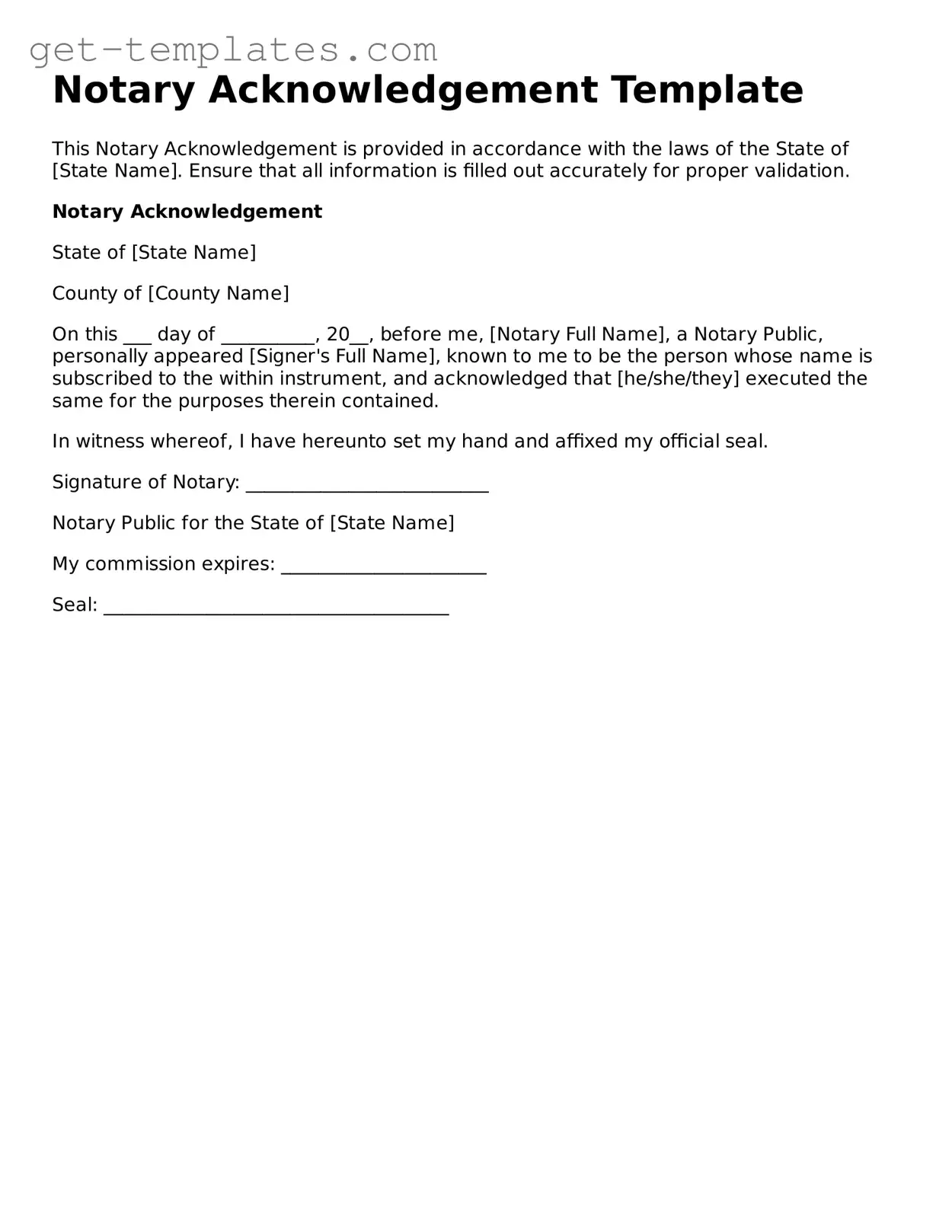Attorney-Approved Notary Acknowledgement Form
The Notary Acknowledgement form is a legal document used to verify the identity of individuals signing a document, ensuring that they do so willingly and under their own free will. This form serves as a crucial component in various legal transactions, providing a layer of authenticity and trust. Understanding its purpose and requirements is essential for anyone involved in notarized agreements.
Get Document Online

Attorney-Approved Notary Acknowledgement Form
Get Document Online
You’re halfway through — finish the form
Finish Notary Acknowledgement online — edit, save, download made easy.
Get Document Online
or
⇓ PDF Form
